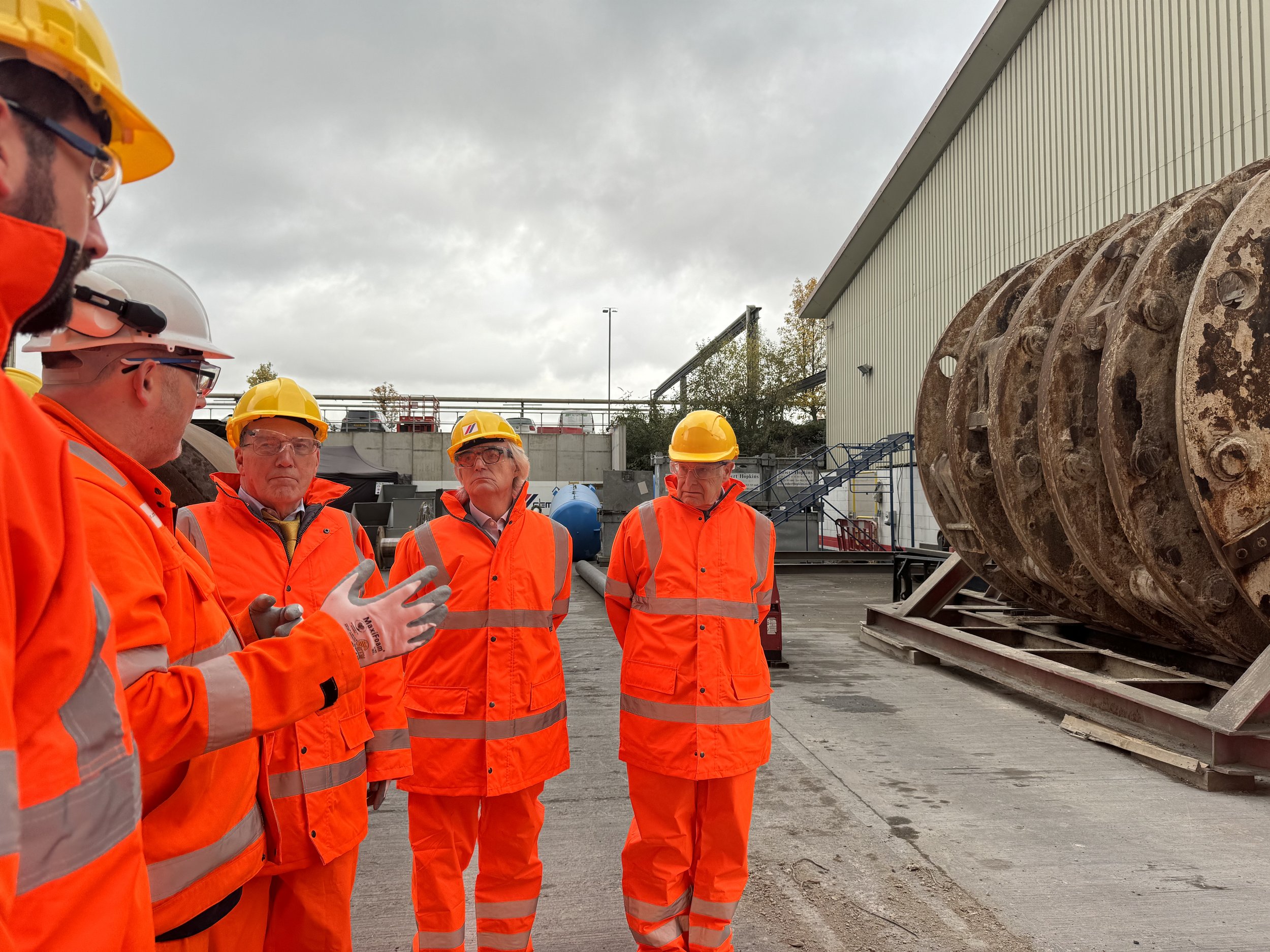SITE VISIT: Cemex cement plant
On 21st November 2023, the UK Trade and Business Commission team undertook a site visit to the Cemex cement plant in Rugby.
Cemex initially reached out to the UK Trade and Business Commission some months ago to highlight a few areas of concern. As the EU moves ahead with its CBAM, Cemex has concerns about the lack of alignment between the EU and UK ETS systems, and about this potential to affect FDI into the UK (they are the largest Mexican investor in the UK). They are also concerned about the shifting regime around conformity assessment in the UK, and how this may affect their ability access cutting edge technologies if these are not conformity assessed for the UK market.
The UKTBC team decided to arrange a site visit to Cemex in order to gather some evidence on the ground and speak to those who work in industries directly affected by shifting Government policy with regards to trade and international cooperation.
Witnesses:
PANEL 1: CBAM AND ETS
LAURA KELLY, Director, Shaping Sustainable Markets, International Institute for Environment and Development
LUCA TASCHINI, Professor, University of Edinburgh Business School
CHIMDI OBIENU, Research Consultant, Carbon Economy, EcoAct
PANEL 2: TRADE POLICY AND NET ZERO
JONNY PETERS, Senior Policy Advisor, E3G
GUDRUN CARTWRIGHT, Climate Action Director, Business in the Community
ESIN SERIN, Policy Fellow, Grantham Research Institute, LSE
3. OTHER ORGANISATIONS CONSULTED
TRANSFORM TRADE
BOND
CEMEX




